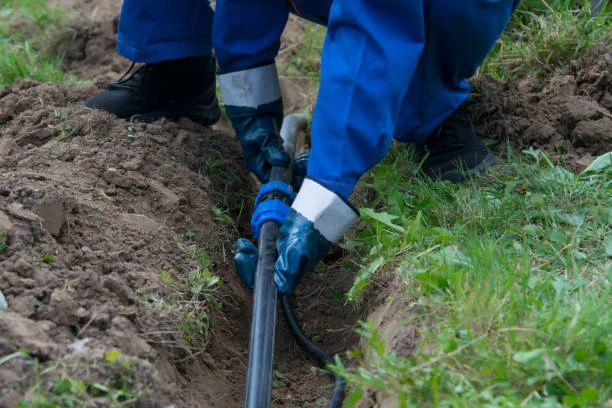Introduction: Expanding Reach with a New HDPE Pipe Plant
Lane Enterprises has made a strategic move by opening a new HDPE pipe plant in Western Canada. This development marks an exciting chapter in the company’s growth and demonstrates its commitment to meeting the increasing demand for high-density polyethylene (HDPE) pipes in the region. As the construction and infrastructure sectors continue to grow, this new facility positions Lane Enterprises to better serve its customers with local production capabilities.
What is HDPE and Why is it Important?
HDPE stands for high-density polyethylene, a thermoplastic polymer known for its durability and versatility. High-density polyethylene pipe plant facilities focus on manufacturing pipes made from this material, which is used in a variety of industries, including water supply, wastewater systems, natural gas, and industrial applications. HDPE pipes are known for being resistant to corrosion, impact, and chemicals, making them a popular choice for both residential and commercial infrastructure projects.
The Need for HDPE Pipe in Western Canada
Western Canada, home to expansive urban centers and growing industries, demands robust infrastructure solutions. As the region’s construction and urbanization continue to expand, the need for HDPE pipe plant products grows. HDPE pipes offer long-lasting, reliable, and environmentally friendly alternatives to traditional pipe materials, such as steel or concrete. Lane Enterprises’ new plant will help meet these demands more efficiently and locally.
Why Lane Enterprises Chose Western Canada for the New Plant
Western Canada was an ideal location for the new HDPE pipe plant for several reasons. First, the region’s growing infrastructure needs create a steady demand for HDPE products. Additionally, Western Canada has an established network of industrial suppliers and contractors, making it easier to build relationships with key players in the market. By locating the plant in this region, Lane Enterprises can reduce shipping costs and improve delivery times to its customers.
The Benefits of Local Manufacturing for Customers
Opening a local HDPE pipe plant in Western Canada offers several benefits for customers. Reduced transportation costs, shorter lead times, and a more responsive supply chain are just a few advantages. Local manufacturing also allows for better customer service, as Lane Enterprises can quickly address regional needs and provide tailored solutions for specific projects. Moreover, this development helps promote economic growth in the region by creating jobs and supporting local communities.
How the HDPE Pipe Plant Will Boost Lane Enterprises’ Capabilities
The new HDPE pipe plant enhances Lane Enterprises’ ability to manufacture large volumes of high-quality pipes. The plant is equipped with state-of-the-art technology and machinery, allowing the company to produce HDPE pipes in various sizes and specifications. This expanded manufacturing capacity will help Lane Enterprises meet the increasing demand in Western Canada while maintaining high standards of quality and precision.
HDPE Pipes and Their Role in Sustainable Infrastructure
One of the key advantages of HDPE pipes is their environmental sustainability. Unlike traditional pipe materials, HDPE is fully recyclable and has a lower carbon footprint during production. By opening this HDPE pipe plant, Lane Enterprises is contributing to more sustainable infrastructure development in Western Canada. The durability and long lifespan of HDPE pipes also reduce the need for frequent repairs and replacements, minimizing waste over time.
The Technology Behind HDPE Pipe Manufacturing
Manufacturing HDPE pipes involves sophisticated extrusion technology, where HDPE resin is melted and formed into continuous pipe lengths. At the new HDPE pipe plant, Lane Enterprises uses cutting-edge extrusion lines to ensure the pipes are uniform in quality and strength. The plant is equipped with advanced testing facilities to monitor the pipes’ pressure resistance, flexibility, and durability, ensuring they meet the rigorous standards required for various applications.
Key Applications of HDPE Pipes in Western Canada
In Western Canada, HDPE pipe plant products will be crucial for a range of applications, including municipal water and sewer systems, irrigation networks, and oil and gas pipelines. The region’s diverse industries require robust, corrosion-resistant piping solutions, which HDPE pipes provide. As municipalities upgrade aging infrastructure and new projects emerge, the demand for HDPE pipes will continue to rise, making Lane Enterprises’ new plant essential to the region’s growth.
Environmental Benefits of HDPE Pipes Over Traditional Materials
HDPE pipes offer several environmental advantages compared to traditional materials like steel, concrete, or PVC. These pipes are lighter, easier to install, and more energy-efficient to produce. They are also highly resistant to corrosion and chemical damage, which extends their lifespan and reduces the need for replacements. In environmentally sensitive areas, HDPE pipes help prevent groundwater contamination and reduce the overall environmental impact of construction projects.
Quality Control and Testing at the New HDPE Pipe Plant
Ensuring the quality of HDPE pipes is critical for their success in demanding applications. The HDPE pipe plant in Western Canada will feature a stringent quality control process to ensure that every pipe meets industry standards. From raw material testing to post-production inspections, the plant will employ a range of quality assurance methods. This attention to detail guarantees that the pipes are reliable and perform well under pressure, temperature fluctuations, and chemical exposure.
Supporting the Local Economy Through Job Creation
The opening of the HDPE pipe plant will have a positive impact on the local economy. The facility will create numerous jobs in manufacturing, engineering, logistics, and management. Additionally, the plant will support local businesses by sourcing materials and services from regional suppliers. By investing in Western Canada, Lane Enterprises is contributing to the long-term economic prosperity of the region.
The Future of HDPE Pipe Production in Canada
As demand for HDPE pipes grows across Canada, Lane Enterprises’ new HDPE pipe plant sets a strong foundation for future expansion. The plant’s success could lead to further investments in manufacturing facilities across the country. Additionally, the shift towards sustainable and durable construction materials is expected to continue, increasing the need for HDPE pipes in various infrastructure projects.

How the HDPE Pipe Plant Fits Into Lane Enterprises’ Vision
Lane Enterprises has long been a leader in the production of HDPE pipes, and this new HDPE pipe plant is a natural extension of the company’s vision for growth and innovation. By expanding its production capacity, the company strengthens its position as a key player in the Canadian market. The new plant also demonstrates Lane Enterprises’ commitment to sustainability, customer satisfaction, and cutting-edge manufacturing technologies.
Conclusion: A Key Milestone for Lane Enterprises and Western Canada
The opening of Lane Enterprises’ HDPE pipe plant in Western Canada is a significant milestone for both the company and the region. This facility will help meet the growing demand for durable, sustainable piping solutions while providing numerous benefits to local communities and businesses. As infrastructure projects continue to develop in the region, the new plant positions Lane Enterprises to lead the way in providing high-quality HDPE pipes for years to come.
Frequently Asked Questions (FAQs)
1. What is an HDPE pipe plant?
An HDPE pipe plant manufactures high-density polyethylene pipes for water, wastewater, and oil and gas industries.
2. Why is HDPE a popular material for pipes?
HDPE is durable, resistant to corrosion, and lightweight. It also has a long lifespan, making it ideal for a wide range of infrastructure applications.
3. What are the environmental benefits of HDPE pipes?
HDPE pipes are recyclable, have a lower carbon footprint, and reduce repair needs, supporting sustainable infrastructure.
4. How does the new HDPE pipe plant benefit Western Canada?
The plant will reduce transportation costs, shorten lead times, and improve the supply chain for HDPE products in Western Canada, while creating jobs and boosting local economies.
5. What applications will the HDPE pipe plant serve in Western Canada?
The plant will supply durable piping for water, sewer, oil, gas, irrigation, and other infrastructure projects.


















